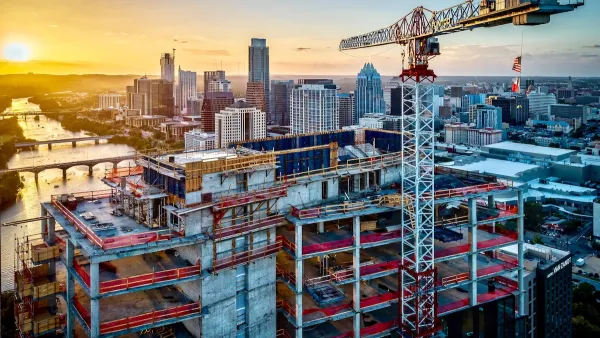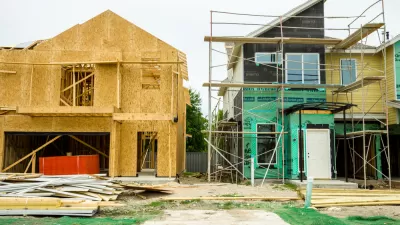City officials say the pause on permits for redevelopment projects aims to stop the displacement of long-term residents.

A “quietly released” memo from the Denver Community Planning and Development department signals a plan to stop approving higher-density projects in some West Denver neighborhoods. According to an article by Joe Rubino in Governing, the move is an effort “to stem the tide of gentrification trends in the historically Latino area.”
The memo announces a pause on rezoning approvals until “more affordability tools to preserve and/or create affordable housing are available to be paired with rezonings to higher intensity districts.”
Proponents of the moratorium say it will help slow the displacement of residents in the area, while critics argue that limiting the development of multi-family housing is exacerbating the housing crisis. “Home values in the West Area Plan neighborhoods increased 155 percent, on average, from 2010 to 2022, a period when home values skyrocketed citywide. But that spike has corresponded with a rapid decline in ethnic diversity in the area,” Rubino explains.
Advocacy group YIMBY Denver says the best way to limit the impact of gentrification is not to stop development in certain neighborhoods, but to eliminate single-family zoning to make it easier to build new housing everywhere in the city. “In 2025, CPD is undertaking a “missing middle housing” project aimed at fostering a more gentle increase in density in appropriate places.”
FULL STORY: Despite Housing Shortage, Denver Puts Brakes on Dense Development

Planetizen Federal Action Tracker
A weekly monitor of how Trump’s orders and actions are impacting planners and planning in America.

Maui's Vacation Rental Debate Turns Ugly
Verbal attacks, misinformation campaigns and fistfights plague a high-stakes debate to convert thousands of vacation rentals into long-term housing.

San Francisco Suspends Traffic Calming Amidst Record Deaths
Citing “a challenging fiscal landscape,” the city will cease the program on the heels of 42 traffic deaths, including 24 pedestrians.

Amtrak Rolls Out New Orleans to Alabama “Mardi Gras” Train
The new service will operate morning and evening departures between Mobile and New Orleans.

The Subversive Car-Free Guide to Trump's Great American Road Trip
Car-free ways to access Chicagoland’s best tourist attractions.

San Antonio and Austin are Fusing Into one Massive Megaregion
The region spanning the two central Texas cities is growing fast, posing challenges for local infrastructure and water supplies.
Urban Design for Planners 1: Software Tools
This six-course series explores essential urban design concepts using open source software and equips planners with the tools they need to participate fully in the urban design process.
Planning for Universal Design
Learn the tools for implementing Universal Design in planning regulations.
Heyer Gruel & Associates PA
JM Goldson LLC
Custer County Colorado
City of Camden Redevelopment Agency
City of Astoria
Transportation Research & Education Center (TREC) at Portland State University
Jefferson Parish Government
Camden Redevelopment Agency
City of Claremont





























